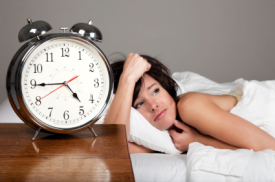Going where the blogs take me and I should add a DISCLAIMER: All the pictures featured on this page belong to their respective owners. If you see your picture featured and don't want it to be, email me with link and I will take it down right away.
Saturday, November 20, 2010
Too little sleep
A lie-in at the weekend does not counter ill-effects of lack of sleep during the week, a study suggests.
.
In tests on 159 adults, US researchers found that a 10-hour "recovery" snooze was not sufficient to make up for a few nights of four hours of sleep.
.
Participants still scored poorly in measures of attention span and reaction times, the journal Sleep reported.
.
It means several nights of extra sleep may be needed for those who have been burning the candle at both ends.
.
Individuals in the laboratory study had two nights of 10 hours in bed.
.
The bottom line is that adequate recovery sleep duration is important for coping with the effects of chronic sleep restriction on the brain
.
They were then restricted to sleeping between 4am and 8am for five nights in a row.
.
After that they were allowed a recovery sleep of differing lengths.
.
Starting first thing in the morning on each day they completed a series of tests every two hours.
.
A small group of 17 patients were allowed 10 hours' sleep every night so their functioning could be compared with those who were sleep-deprived.
.
A night of recovery sleep did help improve test scores and the more sleep people had the better they did.
.
But even in those who had 10 hours of sleep, reaction times, lapses of attention and levels of fatigue did not return to normal.
.
Study leader Dr David Dinges, a sleep expert at the University of Pennsylvania School of Medicine, said that with severe sleep restriction, a long night's rest was not enough to catch up.
.
Lifestyles that involve chronic sleep restriction during the work week and during days off work may result in continuing build-up of sleep pressure and in an increased likelihood of loss of alertness and increased errors
.
The bottom line is that adequate recovery sleep duration is important for coping with the effects of chronic sleep restriction on the brain.
.
In previous research, Dr Dinges has found that sleeping six hours a night or fewer for two weeks has the same negative effects as two nights of total sleep deprivation.
.
Dr Chris Idzikowski, director of the Edinburgh Sleep Centre, said the study counters the currently held view that there is "tremendous recovery" in just one night's sleep.
.
What the research shows is that this is not entirely accurate, it depends on precisely how much sleep loss has accumulated.
.
It implies that if you haven't slept enough during the week, then to recover properly you need at least two night's sleep to recover.
.
Dr David Dinges
Subscribe to:
Post Comments (Atom)

No comments:
Post a Comment